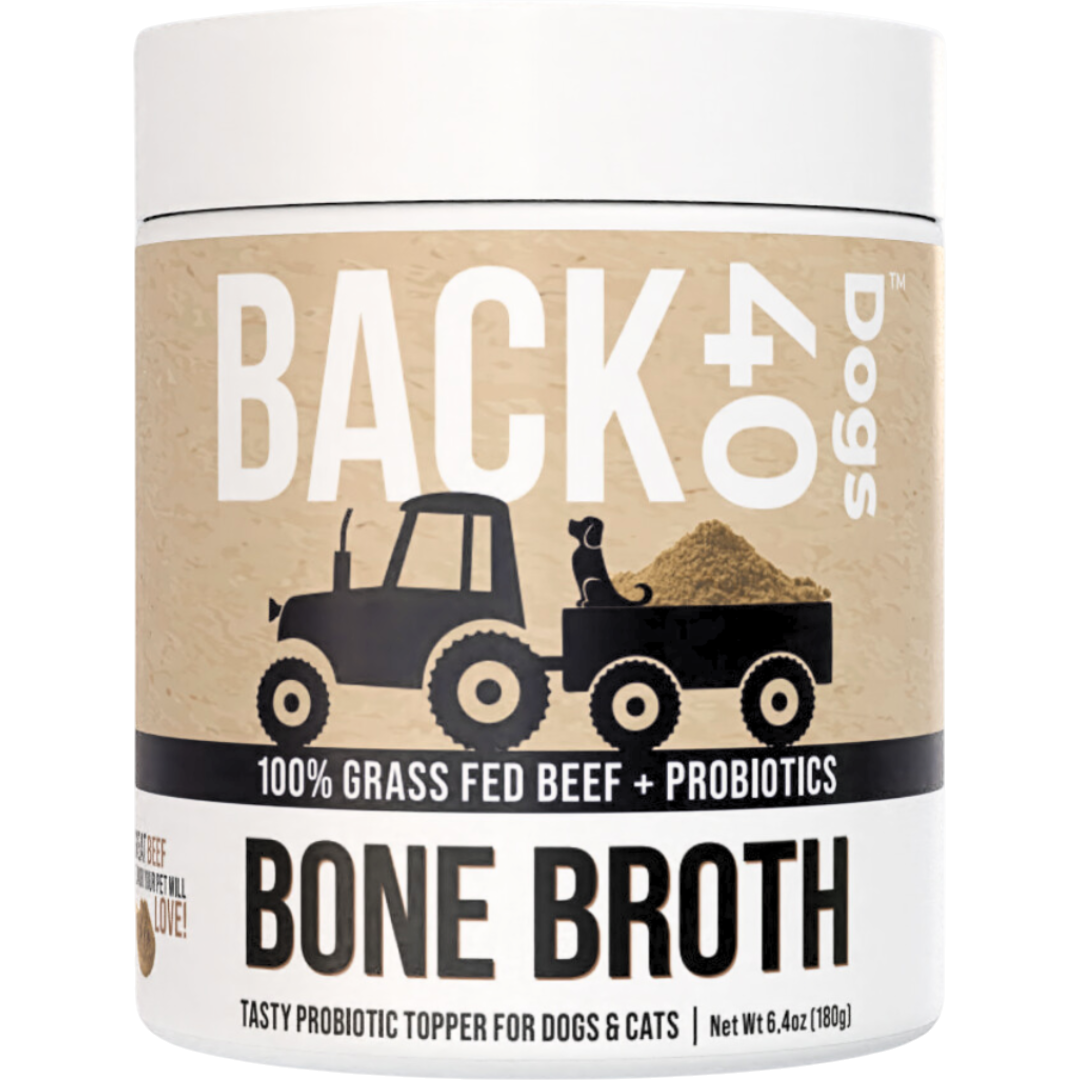

· By BACK 40 Dogs
Natural Remedies for Dogs with Thyroid Issues: The Secret Benefits of Kelp and Other Supplements
Dogs are beloved companions to many people around the world, but like any living being, they are susceptible to various health issues. One of the common problems that dogs face is thyroid issues.

The thyroid gland is responsible for regulating a dog's metabolism, so when it malfunctions, it can cause a variety of health problems. In this article, we will discuss the causes of thyroid issues in dogs and some natural remedies, including the use of kelp.
Causes of Thyroid Issues in Dogs
Thyroid issues in dogs are typically caused by two conditions: hypothyroidism and hyperthyroidism.
Hypothyroidism is a condition where the thyroid gland is underactive and does not produce enough thyroid hormone. This condition is commonly seen in middle-aged and older dogs, with certain breeds being more susceptible, such as Golden Retrievers, Doberman Pinschers, and Great Danes. The most common cause of hypothyroidism in dogs is an autoimmune disease called lymphocytic thyroiditis, where the immune system attacks the thyroid gland. Other causes include iodine deficiency and tumors.
Hyperthyroidism, on the other hand, is a condition where the thyroid gland is overactive and produces too much thyroid hormone. This condition is less common in dogs than in cats. However, when it occurs in dogs, it is usually caused by a benign tumor called a thyroid adenoma.
Symptoms of Thyroid Issues in Dogs
The symptoms of thyroid issues in dogs can vary depending on whether the dog is suffering from hypothyroidism or hyperthyroidism. Some common symptoms of hypothyroidism include weight gain, lethargy, dry skin, hair loss, and intolerance to cold.
Dogs with hyperthyroidism, on the other hand, may show symptoms such as weight loss, increased appetite, restlessness, and hyperactivity.
Natural Remedies for Thyroid Issues in Dogs
If your dog has been diagnosed with thyroid issues, there are natural remedies that you can try to help manage the condition. These remedies may help to alleviate the symptoms associated with thyroid issues and support overall thyroid health.
Kelp
Kelp is a type of seaweed that is rich in iodine, which is essential for thyroid function. Iodine is a crucial component of thyroid hormones, and a deficiency in iodine can lead to hypothyroidism. Kelp can be added to your dog's diet as a supplement to ensure that they are getting enough iodine. Kelp can be found in various forms, including powder, tablets, and flakes.

Fish Oil
Fish oil is rich in omega-3 fatty acids, which are beneficial for dogs with thyroid issues. Omega-3 fatty acids can help to reduce inflammation and support healthy immune function. They may also help to improve skin and coat health, which can be affected by thyroid issues. You can add fish oil to your dog's diet by giving them fish or fish oil supplements.
Coconut Oil
Coconut oil is another natural remedy that can benefit dogs with thyroid issues. Coconut oil contains medium-chain triglycerides (MCTs), which can help to support thyroid function. MCTs are easily absorbed and metabolized by the body, providing a quick source of energy. Coconut oil can also help to improve skin and coat health, which can be affected by thyroid issues. You can add coconut oil to your dog's diet by giving them a small amount each day.
Probiotics
Probiotics are beneficial bacteria that live in the gut and help to support overall digestive health. They can also help to support immune function, which can be beneficial for dogs with thyroid issues. Probiotics can be found in various forms, including supplements.
Conclusion
Thyroid issues in dogs can be a challenging condition to manage, but with the right care and natural remedies, it is possible to help alleviate the symptoms and support overall thyroid health. Kelp is a particularly beneficial natural remedy for dogs with thyroid issues, as it is rich in iodine, which is essential for thyroid function. By incorporating natural remedies such as kelp, fish oil, coconut oil, and probiotics into your dog's diet, you can help to support their overall health and well-being. If your dog is exhibiting symptoms of thyroid issues, it is important to consult with a veterinarian to determine the underlying cause and develop an appropriate treatment plan.
Share:
8 comments
-
Yes I do have a solution 4 her her I arthritis I would give her some fish oil or put some salmon in her food it’s it real good 4 her coat it contains omega 3 and 6
Maryann on
-
Hello, Thank you for providing some information about hypothyroidism. I adopted a female pomeranian that has this condition. I’ve got her weight down, or the inflammation in about 3 weeks with a careful yin diet. She responded to it along with chorrella, and some natural foods. No kibble or dog foods. Many hours of research with all my books and internet. Even though, my concerns are in her system attacking the thyroid. She gets hot at night, and I use the the color chart for her tongue indicating inflammation. Even though her blood work shows a normal range in the heart and liver. I know she’s in pain, I give her #8 cell salts, she doesn’t like the organic sustainable cbd oil. I dont see that healing, even though i dont want her to be in pain possible arthritis. If you have any further information or questions to assist, it would be greatly appreciated. Thank you for taking your time to read this. Sincerely, JoAnna
JoAnna M on






